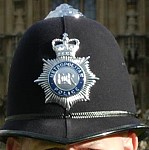
 Sobering news out of London where police officers have been ordered to avoid “flirting” and accepting alcohol from journalists.
Sobering news out of London where police officers have been ordered to avoid “flirting” and accepting alcohol from journalists.
Elizabeth Filkin, the former parliamentary commissioner for standards, warned of the “fraught issue” of drinking with reporters as she outlined a new framework for officers coming into contact with journalists.
In a guide issued at Scotland Yard, officers are also urged to keep a note of any conversation they have with journalists.
When I was working in Fleet Street—admittedly many years ago—that would have been sufficient for a furious outcry from both police and press, who relied to a great extent on each other— the police for money and free drink and the press for information.
In fact if a crime reporter didn’t have several good police contacts he could ply with drink and pump for information he wasn’t up to the job.
I once spent a month in Winchester covering the trial of the IRA bombers who bombed the Old Bailey and other targets in London. Every evening after court adjourned journalists and police who were there for the trial got together either in the hotel bar or one of the pubs in the city for a night of drinking, swapping stories and general rowdiness.
It wasn’t unknown for some female members of the press corps to spend the night in a room that wasn’t theirs and close friendships were formed.
I used to drink regularly with an officer in the Bomb Squad attached to Scotland Yard and he remained a good friend and contact for all the time I was in Fleet Street.
In her review of press-police relations in the wake of the phone-hacking inquiry, Filkin said drinking with officers may be seen as “inappropriate hospitality”.
She said there were “some very serious issues” relating to contact between journalists and police which “eroded trust from the public”.
The report urges officers to “watch out” for “late-night carousing, long sessions, yet another bottle of wine at lunch – they are all long-standing media tactics to get you to spill the beans. Avoid.”
“Inappropriate hospitality”, late-night carousing, long sessions, another bottle of wine—-what Miss Filkin doesn’t realise is that they were all an integral part of police-press relations.
What will the police do now they have to pay for their own drinks?
And where will the journalists get their information?